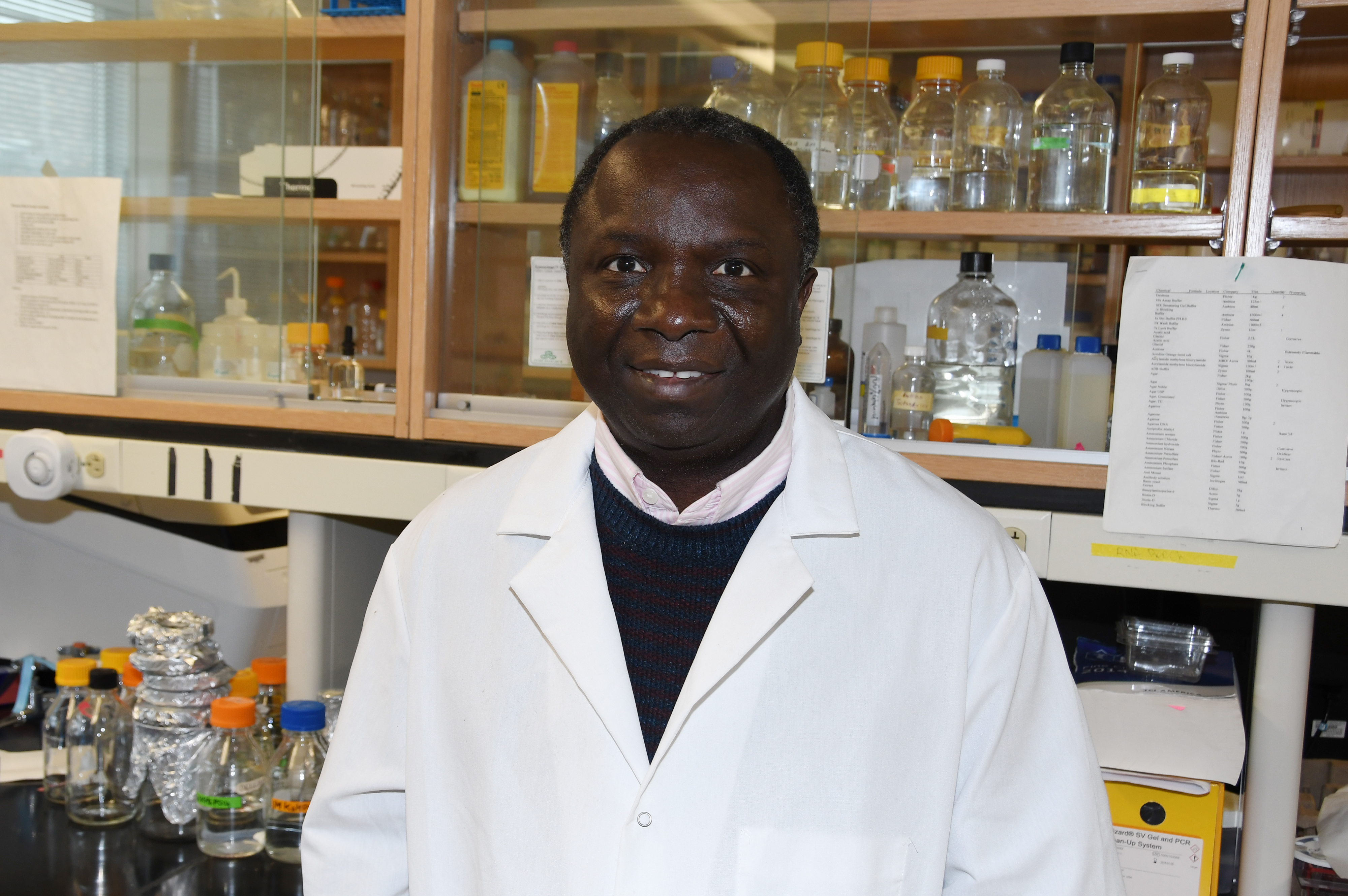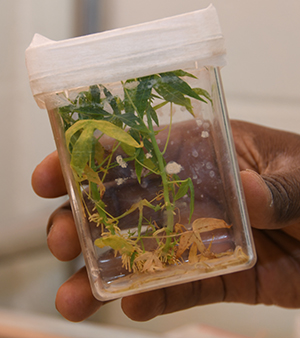
Dr. Fondong unravels mystery of Geminivirus
 When it comes to worthwhile scientific research, methodical persistence and patience is essential.
When it comes to worthwhile scientific research, methodical persistence and patience is essential.
So has been the diligence of Delaware State University’s Dr. Vincent Fondong, who for more than 20 years has been on the long research road toward unraveling the mystery of the Geminiviruses – a group of devastating plant pathogens that have seriously impacted food and cash crops worldwide.
Upon infecting a plant, the Geminivirus multiplies within the plant, robs it of its natural defenses against viruses and inhibits the plant’s growth. Geminiviruses have a protein that favor uncontrolled cellular replication.
Now as a professor of biological sciences, Dr. Fondong – a native of West Africa – is considered to be one of the scientific authorities investigating and developing ways of stopping the Geminiviruses from infecting plants.
To see an interview with Dr. Fondong concerning his Geminivirus research, click on the below link:
Dr. Fondong’s Geminivirus research actually began as he was working on his Ph.D. at Witwatersrand University in Johannesburg, South Africa and at Scripps Research Institute in La Jolla, Calif.. From the outset, Dr. Fondong has primarily used the cassava plant – a root plant that is a major staple food in Latin America, Africa and southeastern Asia. His Ph.D. dissertation was entitled “Viruses Associated with the Cassava Mosaic Disease in Cameroon: Spread and Molecular Characterization.” He then continued that research during his three post-doctorate years at Cornell University.
Two years after Dr. Fondong’s 2002 arrival to DSU, his research received strong encouragement in the form of a $250,000 grant from the National Science Foundation. Over the last 15 years, the National Science Foundation and other funding agencies’ support have continued, with about $5 million in grants supporting Dr. Fondong’s research – for which he was the principal investigator (as well as over $10 million as a co-principal investigator).
Progress in Dr. Fondong’s Geminivirus research has benefited from technologies developed during the Human Genome Project’s breakthrough sequencing of human genome (mostly completed by 2003). During that research, methods were developed to easily sequence large genomes and reveal the arrangement of human beings’ DNA building blocks.
This breakthrough opened the door to understand the nature of the DNA makeup of plants. By applying these sequencing techniques to the cassava plant, Dr. Fondong and others are able to unlock the mystery of the Geminivirus’ successful infection of the plant.
In his early years at DSU, Dr. Fondong investigated how the cassava Geminivirus deployed its genes to infect and cause a disease in plants. That led to his focus on AC4 protein produced by this virus; the protein is considered a plant “oncogene” due to its ability to entice the plant (and not human) cells to continue dividing, thereby replicating the Geminivirus genome.
“In order to control a virus, one must know its steps and how it behaves in the organism to cause the disease,” Dr. Fondong said. “We have been able to establish the different phases of the virus and then design a method to block it.”
Specifically, Dr. Fondong showed that the virus uses the AC4 protein to rob the cassava plant of its natural defenses against viruses. Once that was understood, he has been able to come up with a “gene silencing” method that neutralizes the AC4 and other viral proteins. The method involves modifying the plant to recognize and protect itself against the damaging virus.
Dr. Fondong’s next steps are assessment of the resistance in the field, beyond the laboratory and greenhouse.
“I will continue to write grants to look for funding opportunities to continue this research to the next phase, which is field application,” he said.

